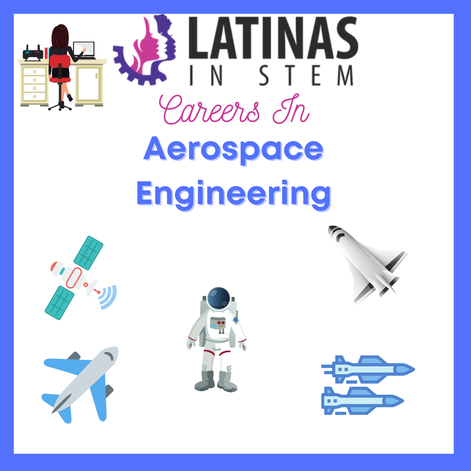Most aerospace engineers work directly in the aerospace industry. Some jobs include working as a commercial Aerospace Engineer where they focus on designing and building commercial aircrafts that are used in the airline business. In addition to designing aircrafts for commercial travel, aerospace engineers are critical to designing aircrafts for space travel. Aerospace engineers also design satellites that are sent into space and handle voice, data, and video transmission tasks daily.
A degree in aerospace engineering can also be used to be a modeler- these engineers design equipment on computers, run simulations on the equipment, and make changes for more efficient and effective equipment. Aerospace engineers are also needed as inspectors and compliance officers. They use their expertise to enforce laws and regulations and they can work for the government or for private companies to detect faults and violations before inspection. Aerospace engineers are also in charge of drawings for missiles, spacecraft, and aircrafts. They draft drawing and specification sheets so that the equipment can be built.
One of the most common careers that people think about when they hear aerospace engineering is mission or payload specialist, or astronauts. They are crew members on space missions that collect data and run experiments on space missions. Aerospace engineers held about 66,400 jobs in 2019. Of those jobs, 36% were in aerospace product and parts manufacturing, 16% were in the federal government, 15% were in engineering services, 10% were navigational, measuring, electromedical, and control instrument manufacturing, and 8% were in research and development in the physical, engineering, and life sciences.
A bachelor’s degree in aerospace engineering or another field of engineering related to aerospace systems is required to become an aerospace engineer. Some universities offer a 5 year program which will allow a student to receive both a bachelor’s and a master’s degree.
Aerospace engineers are at the forefront of technology. This career requires analytical skills, critical-thinking skills, and problem solving skills.
Bureau of Labor Statistics, U.S. Department of Labor, Occupational Outlook Handbook, Aerospace Engineers, at
https://www.bls.gov/ooh/architecture-and-engineering/aerospace-engineers.htm


 RSS Feed
RSS Feed

